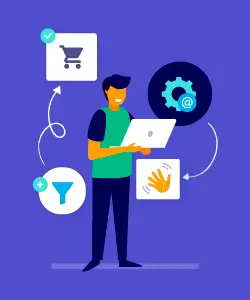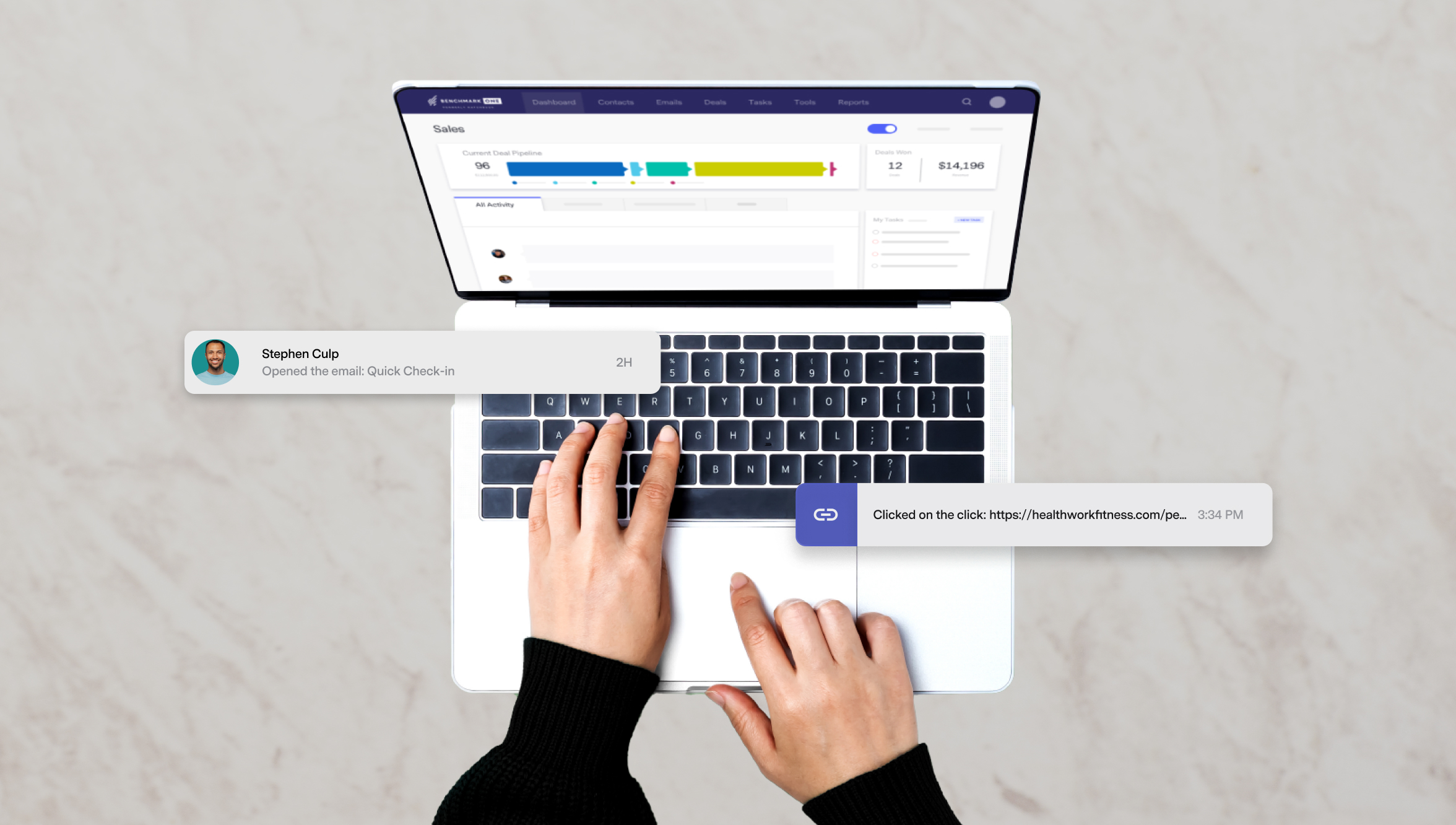The Future of Content Marketing: How AI and Automation Are Shaping the Industry
September 24, 2024 5 min read

Content marketing is undergoing a profound transformation, which is being heavily driven by rapid advancements in artificial intelligence and automation. These technologies are streamlining the content creation process and revolutionizing how content is distributed, analyzed, and optimized. As we look ahead, it’s clear that AI and automation will play an increasingly central role in shaping the future of content marketing.
In this blog post, we’ll explore the current impact of these technologies, their potential future developments, and what this means for content marketers.
The Rise of AI in Content Creation
AI’s influence on content creation is the most visible aspect of its impact on the industry. AI-powered tools have evolved significantly, allowing marketers to generate content faster, more efficiently, and with a higher degree of personalization. AI can be used in almost every step of content creation. Deepa Chauhan from Accelirate, uses AI to optimize content creation by generating topic ideas, enhancing SEO with keyword analysis, and automating content distribution across platforms for maximum reach and engagement.
Here’s how AI is currently shaping content creation:
1. Content Generation
AI-driven platforms like GPT (Generative Pre-trained Transformer) models can generate high-quality written content in seconds. These tools can produce blog posts, social media updates, product descriptions, and even video scripts, reducing the time and effort required from human writers. While AI-generated content may still need some human oversight, the ability to quickly produce large volumes of content is a game-changer for marketers.
2. Personalization
Personalization has become a key factor in content marketing success, and AI is making it easier to deliver tailored content to individual users. By analyzing user data, AI can determine what type of content resonates with each segment of an audience and generate variations of that content to meet diverse preferences. This leads to more relevant and engaging content, improving the customer experience.

Personalize Your Emails with Ease: What to Personalize and How to Do it With Benchmark Email
DOWNLOAD NOW3. SEO Optimization
AI tools are also transforming how marketers approach SEO. AI-driven platforms can analyze keywords, predict trending topics, and suggest content structures that are more likely to rank well on search engines. Additionally, AI can continuously optimize content post-publication by reviewing content performance and suggesting real-time adjustments that will improve visibility and engagement.
4. Content Strategy Development
AI can help marketers create compelling content strategies by analyzing past performance data, identifying content gaps, and predicting future trends. By leveraging AI for content strategy, marketers can focus on creating content that aligns with audience interests and business objectives.
Automation in Content Distribution
While AI is revolutionizing content creation, automation is reshaping content distribution. Automation tools allow marketers to streamline delivering content to the right audience at the right time. Here’s how automation is influencing content distribution:
- Automated Social Media Posting: Social media platforms are critical channels for content distribution, and automation tools have made managing these channels at scale easier. Marketers can schedule posts, automatically distribute content across multiple platforms, and even respond to user interactions without manual intervention. This not only saves time but also ensures consistent and timely content delivery.
- Email Marketing Automation: Email remains a powerful tool for content distribution, and automation has enhanced its effectiveness. Marketers can create email campaigns that are automated, sending tailored content based on user needs, actions and preferences. For example, a user downloading a whitepaper might automatically receive follow-up content related to that topic, nurturing them through the sales funnel.
- Audience Segmentation and Targeting: Automation tools enable more precise audience segmentation and targeting, ensuring that content reaches the most relevant audience. These tools can automatically segment audiences by analyzing user data based on demographics, behavior, and engagement history. By enabling marketers to deliver content more likely to resonate with their audience segments, they can increase their chances of conversion.
- Real-Time Content Delivery: With automation, marketers can deliver content in real-time, responding to user actions or external events. For instance, if a user abandons a shopping cart, an automated system can instantly send a personalized email with content encouraging them to complete the purchase. This immediacy helps capture opportunities that might otherwise be lost.

The Future of Content Marketing: AI and Beyond
As AI and automation evolve, their impact on content marketing will only deepen. Here are some future trends that marketers should be aware of:
AI-Driven Content Curation
Shortly, AI will play a larger role in content curation, helping marketers identify and share the most relevant third-party content with their audiences. By analyzing vast data, AI can curate content that aligns with a brand’s messaging and resonates with its audience, enhancing the overall content strategy.
Voice and Visual Search Optimization
As voice and visual search tech become more popular, AI will be essential in optimizing content for these new search modalities. AI can analyze how users interact with voice and visual search, helping marketers create optimized content for these formats and ensuring their content remains accessible as search behaviors evolve.
Hyper-Personalization
The future of content marketing will likely see the rise of hyper-personalization, where AI creates content tailored to audience segments and individual users. This level of personalization will require advanced AI algorithms that can analyze user behavior in real-time and deliver content that meets their immediate needs and preferences.
AI-Generated Multimedia Content
While AI is already generating written content, the future will likely see an increase in AI-generated multimedia content, including videos, infographics, and interactive content. AI tools will be able to create engaging multimedia assets at scale, enabling marketers to diversify their content offerings without significantly increasing production time or costs.
Predictive Content Analytics
AI will also enhance predictive content analytics, allowing marketers to forecast the performance of their content before it’s even published. By analyzing previous data and market trends, AI can predict how different pieces of content will perform, helping marketers make more informed decisions about what to create and how to distribute it.
The Role of Human Creativity
Despite the significant advancements in AI and automation, human creativity will remain an essential component of content marketing. While AI can generate and distribute content efficiently, it lacks the emotional intelligence, creativity, and nuanced understanding of human experiences that only human creators can bring. Marketers must balance leveraging AI for efficiency and using human creativity to craft compelling stories that resonate more deeply.
AI and automation are undoubtedly transforming the content marketing industry, offering unprecedented opportunities for efficiency, personalization, and scale. As these technologies evolve, they will play an increasingly central role in content creation and distribution. However, the future of content marketing will also require thoughtful integration of AI capabilities with human creativity, ensuring that content reaches the right audience and resonates with them on a personal and emotional level.






